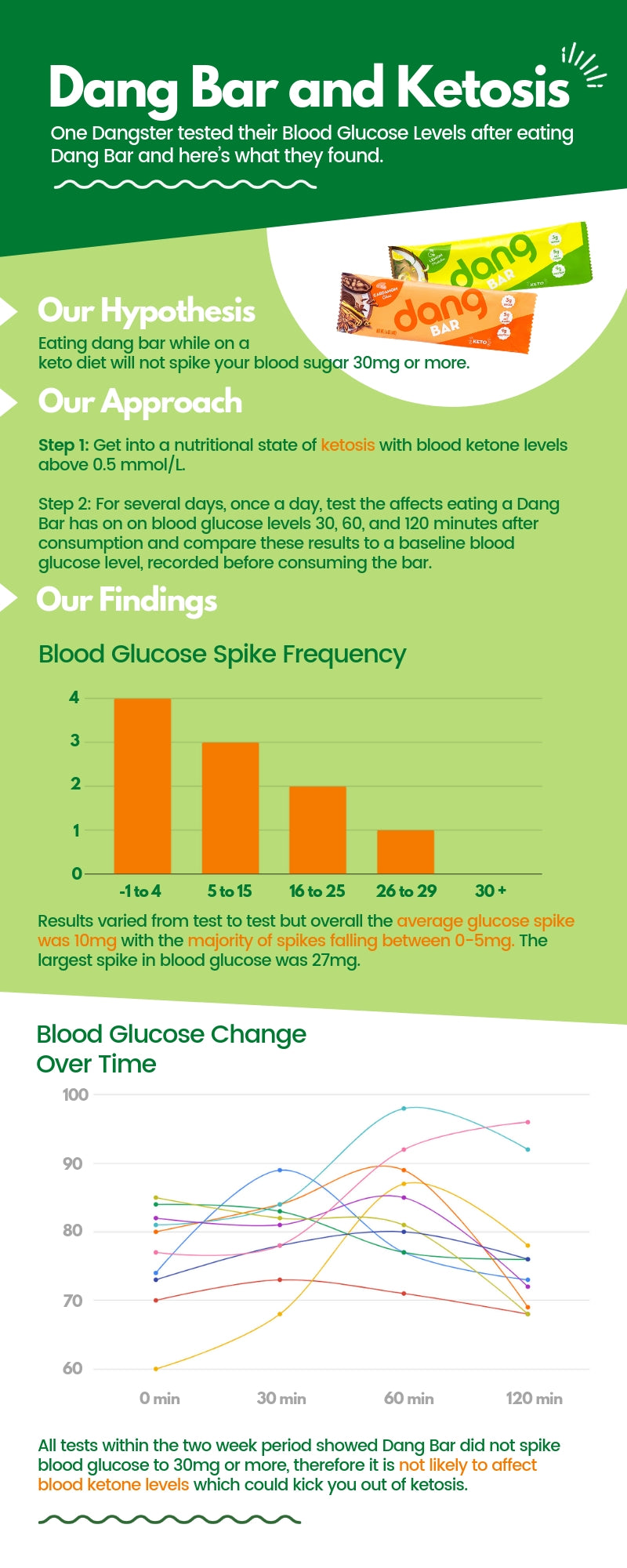With its ability to transform your waistline, reduce inflammation, and increase your energy levels, the Ketogenic diet is definitely having a moment. This trendy diet doesn’t seem to be going anywhere fast. Cue in all the new low carb, low sugar bars, cookies, chips, crackers, protein powders, chocolate, and even cereals. You name it, it’s been “Keto-fied”.
There are a lot of viable Keto friendly options out there but sifting through all the nutrition labels and ingredient lists can be overwhelming. Will this sweetener taste bitter? Will that soluble fiber hurt my stomach? What sugar alcohols will or won’t my body actually process as carbs?
And perhaps most importantly, what could potentially kick me out of Ketosis? Two ways to really figure this out are 1) blood Ketone measuring or 2) blood glucose tracking.
The Limitations of Blood Ketone Measuring
In “The Art and Science of Low-Carbohydrate Living”, pioneering Ketone scientists Jeff Volek and Stephen Phinney defined nutritional Ketosis as blood Ketone levels ranging from 0.5 - 3.0 mmol/L.
Ketone levels are typically determined by either using urine or blood strips. It can take over a day for your body’s Ketone levels to increase or decrease and it’s usually what you ate the day before that is affecting your Ketone reading.
Say you had what you believed to be a perfect Keto day. You properly calculated net carbs for the different snacks you ate, subtracting fiber and sugar alcohols from total carbs, trusting that maltitol in the “Keto” cookie won’t affect your Ketosis. You rocked it and stayed within your allocated 20-50g of carbs.
But something went wrong. You check your Ketone levels the next day and they’re low. What do you do? If you ate several things the day before it will be difficult to pinpoint what specifically had the adverse effect.
So how do you tighten the feedback loop between what you ate and understanding the effect it will have on your Ketone levels? Answer: track your blood glucose levels.
Blood Glucose Levels: Why Track Them?
Blood glucose or blood sugar is the sugar the bloodstream carries to cells in the body to supply energy. Your blood glucose level is the amount of sugar the blood is transporting during a single instance.
Blood glucose levels immediately change after eating something and this instantaneous feedback can be a proxy to confirm whether something is or isn’t Keto friendly.
Your baseline blood glucose level is your normal blood glucose reading before eating. Foods that trigger significant spikes will likely affect your Ketone levels the next day.
On a Ketogenic diet you don’t want your blood glucose level to spike 30mg or more from your baseline. Within two hours, your blood sugar should be back closer to your baseline.1
How Does Dang Bar Affect Blood Glucose Levels?
At Dang Foods we used blood glucose testing as a proxy to confirm Dang Bar is “Keto friendly”. While our bars are formulated with the optimal ratio of macronutrients for a Keto diet, 70% fat, 20% protein and 10% carbs, we wanted to make sure our ingredients were not spiking blood sugar.
As Dang’s most disciplined Ketogenic staff member, I volunteered to be the blood glucose “guinea pig”. Every day for 10 consecutive days, I ate a Dang Bar while in Ketosis, and observed my blood Ketone levels remained between 1.0 and 2.1 mmol/L.
Results varied from test to test but overall, my average glucose spike after eating a bar was 10mg with the majority of spikes falling between the 0-5mg range.
All tests within the two week period showed Dang Bar did not spike my blood glucose to 30mg or more, therefore it is not likely to affect blood Ketone levels.
 Dang Bar has helped thousands of people, including me, stay on track with Keto, but everyone's bodies are different and react to foods differently. If you are unsure about what foods will spike your blood sugar, we strongly advise you to test your own blood glucose after eating Dang Bar or any other food to see how it affects your own ketone levels.
Dang Bar has helped thousands of people, including me, stay on track with Keto, but everyone's bodies are different and react to foods differently. If you are unsure about what foods will spike your blood sugar, we strongly advise you to test your own blood glucose after eating Dang Bar or any other food to see how it affects your own ketone levels.
1Furdek, Sue. “What Do I Need to Know about Optimal Glucose Levels and Glucose-Test Results?” Help Docs & FAQs, Keto-Mojo, 10 Apr. 2019, help.Keto-mojo.com/l/en/article/O7Z4xxuVu4-glucose-range












